6 Scientific Journeys Through Present and Future India
This Labocine Spotlight, we have chosen to feature six films that together offer a perspective on the state of science in India. Of these films, we have selected three documentary shorts, among them Copper, Spacefaring, and The Catalysts of Change: Water Woes in Rajasthan, each looking at the impact of scientific advancement from its unique vantage point: Copper from the inside of a vat of nitric acid, Spacefaring from a rocket ship in a rural Bengal village, Catalysts from the hollow echo of a song lamenting a more abundant past. Providing an interlude are three fictional works: the isolating loss in Dharini and the crippling fear of the inevitable in Eclipse of Taregna, followed by the absurdist escapism in the experimental short, Televisnu.
Altogether, these six films have a 79-minute run time. The differences in genre make for a deeply immersive experience, the serial equivalent of a 360 video of science in India and, more equivocally, of how science sometimes slips by unnoticed as a moderator in life. How it brings us together, if even for a moment, as a therapist, a pied piper, a matchmaker, a destructive force, the worst smell imaginable, or a messenger in the form of radio frequencies.
When watching these films, we found a certain cadence, one that begins with Dharini. Written and directed by Anupama Pradhan, Dharini is set in an American town inhabited by an Indian teen, Dharini (Natasha Pancholi Khatod), and her brother Abhay (Raja Fenske). After a fatal car accident that renders her an only child, Dharini retreats into herself, a reaction captured beautifully by Pradhan, who integrates the launch and eventual tragedy of the Columbus Space Shuttle Mission of 2003 to amplify Dharini’s own shock. The muted colors and the graininess of film bring us into Dharini’s mind, one that frequently recalls old memories and reconsolidates the present with clippings from TV. The film is raw and exhausting, priming the viewer for the next film, Copper, which opens with a shot of two boys teasing one another.
Copper is filmmaker Mike Paterson’s documentary set in a literal technological graveyard covered with discarded circuit boards of every size, weighed down by beads of dry brown sand that have willfully escaped the natural terrain. Behind the walls of what looks like a fortress sit heavy blue vats of nitric acid. The workers, teenagers from a farm in Bihar, use these vats to bathe old circuit boards, collecting the copper dust that bubbles to the surface on bales of silvery wire to sell back to factories. It is almost impossible to witness the apocalyptic field in Copper and not find Spacefaring, the next film, surreal—absurd, even, in comparison.
A documentary combining field footage with CGI animation, Felipe Aguilar’s Spacefaring is a celebration of Space Race ambitions in India. Sexy, high octane, and powerful, the film glorifies India’s foray into space exploration, an effort guided by the buttery, wealthy, authoritative voice of a God-like narrator. Though Spacefaring sometimes watches like an upgraded War Relocation Authority video from the 1940’s, replete with tight, albeit beautiful, frames of wordless villagers and grandiose claims about technology’s impact across all sectors, it is motivating to hear and stimulating to watch. Spacefaring is Science’s Promise, the rare, non-nihilistic philosopher’s Mind Palace, a hope that exacerbates and fuels the mad scientist’s midsummer dreams.
In Rakesh Chaudhary’s Eclipse of Taregna, we are brought back to Earth, once again in a rural Indian village. This time it is Taregna, the best place to view the solar eclipse of 2009 and home to an aging man with glaucoma who could not care less about the impending blindness of the planet in the face of his own darkening vision. In this story, science binds like the copper of Paterson’s film. The failure of medicine to save a man from his defeating illness is offset by the wonder of the natural world, a timely planetary alignment that sparks a young boy’s (Purav Bhandare) curiosity and redirects his grandfather (Surendra Rajan) to the love and family his disease has distracted him from. Interspersed throughout the film are moments of forced perspective where we view a world of shadows through the grandfather’s dying eyes. The effect is terrifyingly empathetic, embittering, and, once again, absurd, as we become increasingly more baffled by the village’s anticipation for the absence of light.
As far as Eclipse in Taregna integrates you into the community of an Indian village, The Catalysts of Change: Water Woes in Rajasthan takes it one step further. A documentary filmed by directors Chintan Gohil & Jayson Taylor in collaboration with SEEDS India, Catalysts captures a town almost completely devastated by climate change. Worried about a lack of top-level concern for the welfare of this town and others like it, members of the community, namely a group of young women, begin broadcasting their call to action via a podcast. It becomes a project of pride in the community, and on a socio-political level, there is empowerment in seeing vocalized support for outspoken females.
The Catalysts of Change: Water Woes in Rajasthan
Finally, Televisnu follows en suite with the theme of outspoken females, although its lead, the beautiful Mira (Jahnavi Kamath), appears soft-spoken to the naked eye. An experimental film by writer and director Prithi Gowda that feels like Being John Malkovich meets Willie Wonka meets Teletubbies meets Waking Life meets Requiem for a Dream meets Frida Kahlo, Salvador Dali, and all your disconnected thoughts, Televisnu is science at its most psychedelic, exploring the limitless nature of technology within the hilarious bounds of a dutiful daughter’s struggle to either realize or suppress her desire for a cute coworker in anticipation of an arranged marriage. Gowda’s film works as a natural bookend to the series, leaving the viewer lying on her back on the tongue of Vishnu, willing dreams of our universe into reality, marveling at what we know and what is left to learn.
Films Featured in Labocine
Dharini (Director: Anupama Pradhan)
With an inquisitive mind and a love for science, Dharini is full of exuberance and ambition... as well as the naivet̩y of a teenager who has yet to face real loss in her life. Taking place over the 16 days of the ill-fated Columbia space shuttle mission of 2003, Dharini delves into the world of an imaginative young woman whose personal tragedy seems somehow linked to the greater cosmos. When a sudden accident forces her to confront questions she cannot answer, Dharini struggles to overcome a numbing grief and begins to grasp the vastness and mystery of a universe that cannot be fully explained.
Spacefaring (Director: Felipe Aguilar)
Spacefaring outlines the true story of the high tech Indian Space Program against the backdrop of a rural village that appears to be suspended in time. In the near future will we be able to create sustainable colonies on other planets, or will we make the same mistakes as here on earth? What can we learn from history and tradition? This short film combines documentary field footage with CGI animation, creating a journey full of subtle details that make this world as unique as India itself.
Eclipse of Taregna (Dir. Rakesh Chaudhary)
An old man takes his grandson to witness a solar eclipse in this gorgeously rendered view of life in a small town in India.
Mr. Pathak is a retired civil engineer and lives in Taregna, a small town in India. He is worn out by life’s many setbacks and is indifferent to his family –Laxmi, his daughter-in-law and Roshan, his 8-year old grandson.
The announcement by NASA that the best place to watch an upcoming solar eclipse will be Taregna, has no impact on Pathak. However, Roshan’s curiosity for the celestial event of a lifetime is boundless. When Pathak finally realizes that Roshan desperately needs a father figure, he can no longer remain a bystander to life.
Televisnu (Dir. Prithi Gowda)
Mira, a call center worker finds herself falling for Kiran, a co-worker when her computer crashes. Mira tries to fix her computer but instead falls into a web of electronic wires, where memories, and hidden desires lead her through a confusing maze which she must escape from.
The Catalysts of Change: Water Woes in Rajasthan (The Source Project, Dirs. Chintan Gohil & Jayson Taylor)
In arid northwestern state of Rajasthan, the areas of Thar desert experience extreme shortage of water. With changing rain fall patterns and declining ground water supply, the impacts of climate change are visible and the need for action urgent.
Copper (Dir. Mike Paterson)
In rural India, agricultural workers drift to the cities where they carve out a living by extracting copper from discarded electronic circuit boards, while their land back home lies unworked.


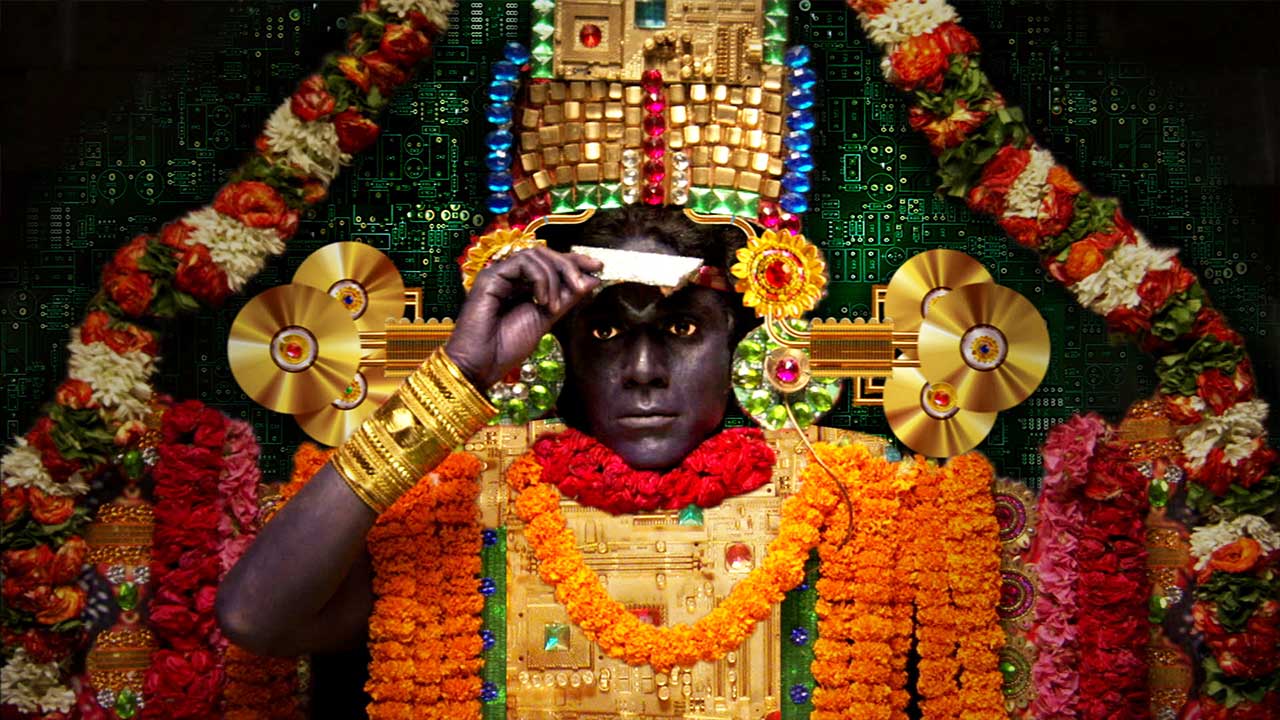
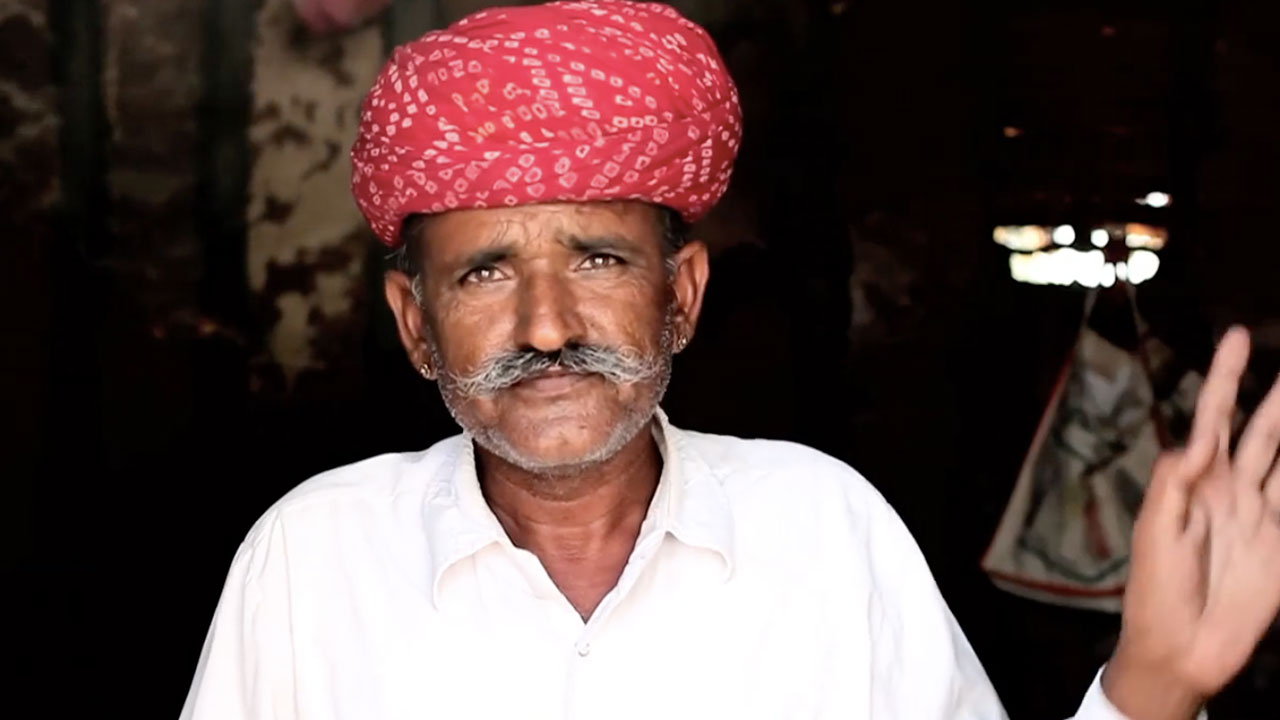
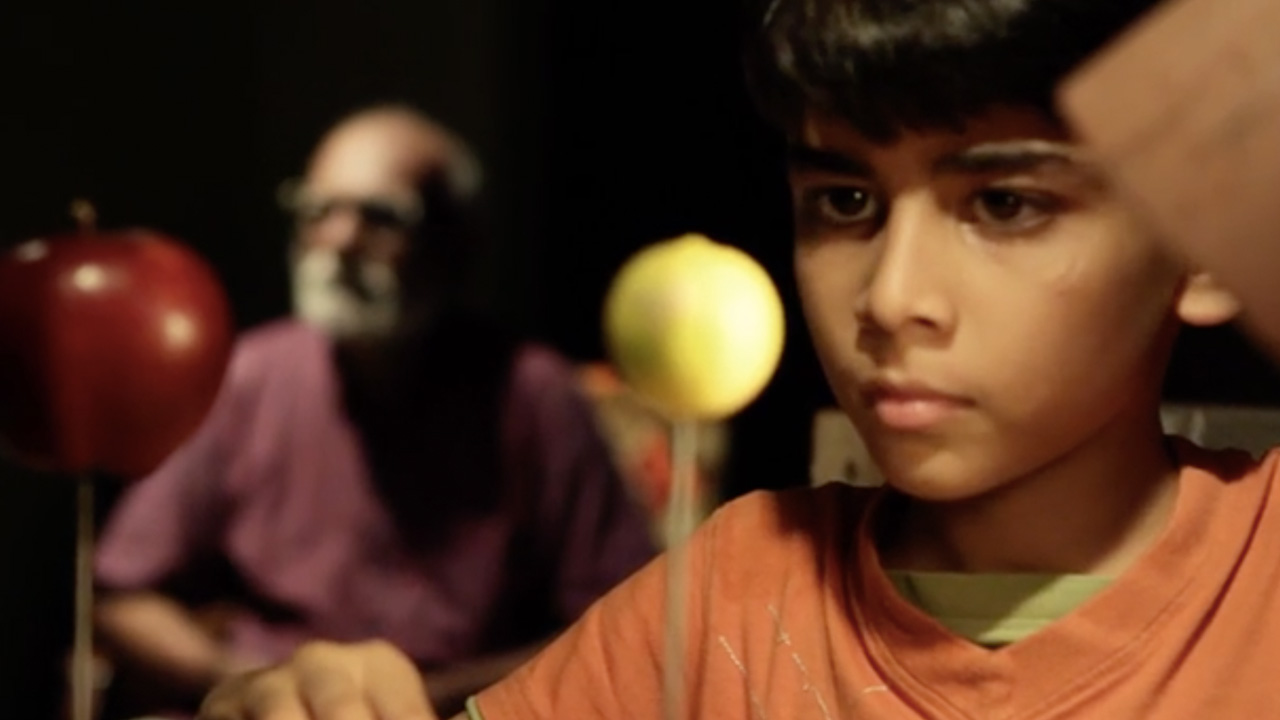
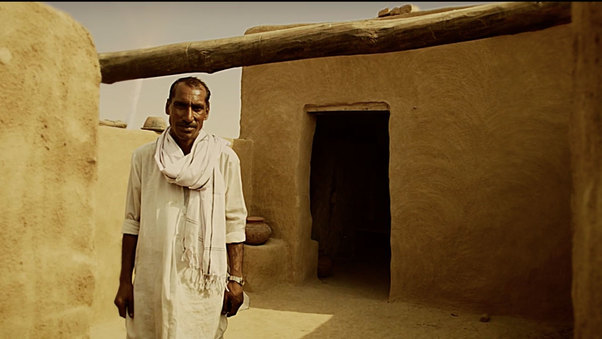
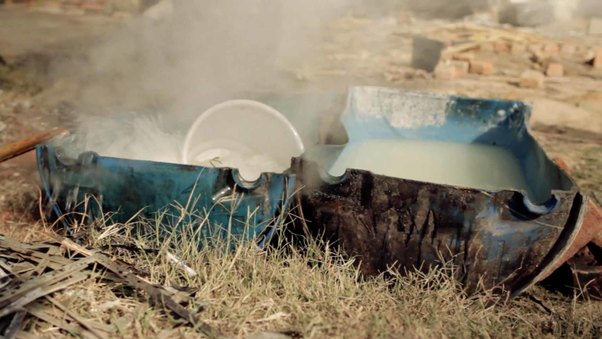
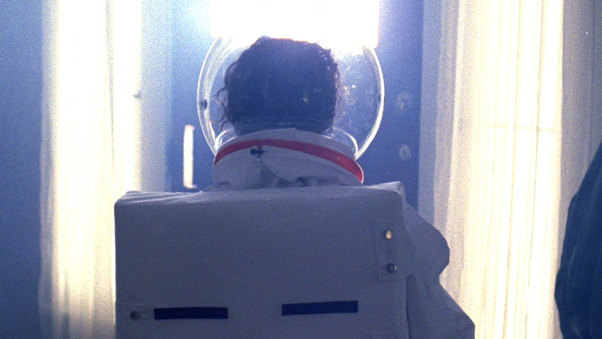
 Dharini
Dharini



